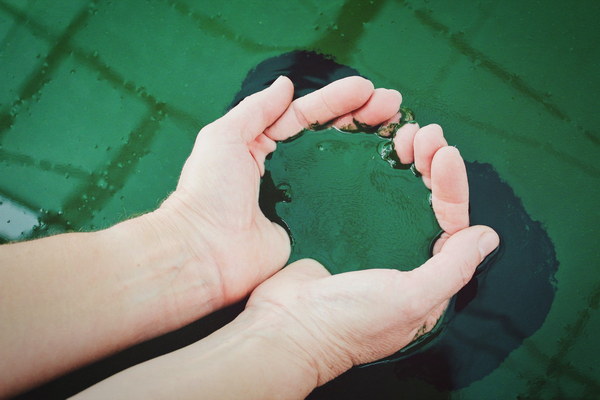Unveiling the Secrets of Camphor Wood Does It Really Relieve Dampness
In the realm of traditional Chinese medicine, camphor wood has long been revered for its numerous health benefits. One of the most intriguing properties attributed to camphor wood is its ability to alleviate dampness. But does camphor wood actually have the power to banish dampness from our lives? Let's delve into the mysteries of camphor wood and explore its potential as a natural remedy for dampness.
Camphor wood, also known as camphor wood bark or camphor tree, is derived from the camphor tree (Cinnamomum camphora). This evergreen tree is native to southeastern China, Japan, and Taiwan. The essential oil extracted from the bark of the camphor tree is known as camphor oil, which is widely used in aromatherapy, medicine, and even in the production of certain cosmetics.
In traditional Chinese medicine, dampness is considered an underlying factor in various health issues, such as joint pain, fatigue, and even certain skin conditions. The concept of dampness is based on the belief that excessive dampness in the body can lead to the accumulation of toxins and hinder the normal functioning of the body's organs.
Camphor wood is believed to possess strong drying properties that can help expel dampness from the body. Here are some ways in which camphor wood is thought to relieve dampness:
1. Aromatherapy: The aroma of camphor wood has been found to have a calming effect on the mind and body. Inhaling the scent of camphor wood can help improve lung function, thereby aiding in the elimination of dampness.

2. External application: Camphor wood powder or oil can be applied topically to areas affected by dampness, such as the joints or skin. This can help reduce inflammation and alleviate pain associated with dampness.
3. Internal consumption: Some traditional Chinese medicine practitioners recommend taking camphor wood in the form of tea or capsules. It is believed that this can help eliminate dampness from the body internally, thereby preventing the onset of related health issues.
4. Environmental use: Camphor wood can also be used in the environment to help reduce dampness. By placing camphor wood blocks or sticks in damp areas, such as basements or bathrooms, it is thought that the drying properties of camphor wood can help prevent the growth of mold and mildew.
While the concept of camphor wood's dampness-relieving properties may seem intriguing, it is essential to note that scientific evidence supporting these claims is limited. Some studies have suggested that camphor oil can have anti-inflammatory and analgesic effects, which may contribute to its potential in alleviating dampness-related symptoms.
However, it is crucial to approach the use of camphor wood as a complementary therapy rather than a substitute for conventional medical treatment. If you are suffering from dampness-related health issues, it is advisable to consult with a healthcare professional before resorting to traditional remedies like camphor wood.
In conclusion, while the belief in camphor wood's ability to relieve dampness is deeply rooted in traditional Chinese medicine, scientific evidence supporting its efficacy is limited. Nonetheless, the natural properties of camphor wood may offer some relief for those suffering from dampness-related symptoms. As with any complementary therapy, it is essential to use it responsibly and consult with a healthcare professional before incorporating it into your treatment plan.









